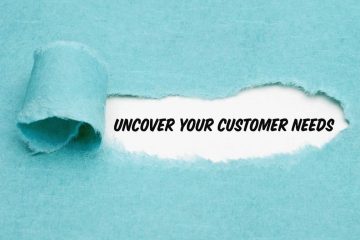The increasingly growing use of data to inform business decisions has become an important priority for B2B marketing and sales executives for their b2b lead generation services, and other aspects of their business as well. However, the data silos across technologies and the consistent data structure to link systems making it quite tough for teams to activate campaigns in a scalable way.
B2B buyers now expect consistent, fast, and more personalized experiences. Additionally, their buying journey isn’t linear and is inclusive of several stakeholders in the same way. B2B sellers and marketers must turn their data assets into actionable recommendations by leveraging b2b data licensing to effectively manage the complexity of serving the modern B2B buyer. Sales and marketing decisions are still just as likely to be made on gut feeling as on data and analysis, although there’s no shortage of data or attention to this matter.
To explore this topic, in 2017 we conducted an online survey that included 500 respondents responsible for their prospect and customer data management or strategy. What we found in the survey that while all companies face significant challenges in converting their data into actionable insight, a significant number of respondents who are using more mature data practices and services like b2b data licensing are seeing a significant impact across b2b lead generation services, sales, marketing, and customer goals.
Just half of B2B marketing and sales decisions are made using data: The opportunity to use data for b2b lead generation services, and marketing and sales decisions remains largely untapped despite the huge amount of data available and the organization’s commitment to data priorities. Variation in data consistency and quality for b2b lead generation services, sales and marketing across departments are quite common challenges that make decision-makers gun-shy and erode trust about using their customer data over their own intuition.
Data activation maturity is a competitive differentiator: While the challenges with insight sharing, data management, and actionable insight development were problems that were identified with all respondents, a portion of them, reported better results than the rest of the respondents. While these data activation leaders said that they’re quite good at utilizing their data to make decisions and also for their b2b lead generation services, such as personalizing experiences or accurately attributing campaign success, they are much more likely to report increases across key sales, marketing, and customer metrics, such as return on marketing spend, sales cycle speed, and customer loyalty.
Investment in data like in-house data management, b2b data licensing or b2b email list, and analytics can help the data activation maturity journey: The data activation leaders are organizing their insights teams and using highly advanced analytics techniques for success. However, they also recognize that patterns can help them fulfill technology, internal data, and expertise gaps and also extend their efforts for data activation faster and further, which wouldn’t be possible on their own.
What is Data Activation and Why Sales and Marketing Teams Should Care?
It goes like this; Data In…, Unlock Value…, Data Out.
The concept of unlocking value in data through the development of insights and then turning those insights into action is data activation. While data-driven sales and marketing isn’t a new concept, using Data Management Platforms (DMPs), sales and marketing teams are using big data to inform their sales and marketing activity, along with their b2b lead generation services. A DMP is rapidly shifting to a “must-have” from a “good to have” solution.
The following are the three different stages of data activation;
- Data in: Bring data into a centralized platform, by getting data from any location, within a single structure so that it can be easily used in aggregate. Data comes from several locations. B2B lead generation, sales and marketing teams can aggregate data from different locations like apps, websites, CRM systems, offline databases, transactional data, media impressions, and more.
- Unlock Value: Once all your data is in a centralized location, you can unlock its value by running analytics on the data and then use it to drive your campaigns and optimizations for your b2b lead generation, sales and marketing efforts. Some of the examples can include look-alike modeling, audience profile analysis, and act-alike modeling as well as many other opportunities.
- Data out: It is one of the most complex elements of data activation and hence needs more work. However, with deep integrations throughout the ad and sales, marketing eco-system; you can easily share data segments that drive efficient customer outreach, have been developed with b2b lead generation, sales and marketing partners, reduce waste, and get better performance on the back-end.
The combination of these three stages is data activation and a DMP platform makes it all possible. Every organization that works with a DMP develops its entirely exclusive solution because of the combination of products being used to unlock the value, unique nature of the data that comes in, and the unique partners where the data is shared.
Companies Struggle to Activate Data:
As more and more B2B companies set their sales, marketing, b2b data licensing, and b2b lead generation services priorities for the upcoming 12 months, increasing their use of analytics and data is at the top of their to-do-list for successfully meeting their objectives in customer experience (CX) improvement, revenue growth, and cost reduction. Data activation is the key to successfully meeting those marketing, sales, b2b data licensing, and b2b lead generation services priorities.
While surveying 500 B2B executives regarding their data management and strategy, we found the following;
- B2B sellers and marketers lack accurate and complete data: B2B sellers and marketers need data that is consistent across technologies and activities and that they can convert to insights faster to successfully meet their customer requirements. But, as a VP of a financial services company in the U.S. highlighted, the data gap is a critical issue and we don’t have enough data to totally make decisions and a good b2b data licensing services helps greatly. Additionally, less than 50% of the companies say they are executing on their data governance practices extremely or very well. That restricts companies from using their customer data to activate their sales and marketing initiatives at scale.
- Only half of sales and marketing decisions are based on data: In our survey, we found that B2B sellers and marketers on average are making 49% of decisions on personal/company experience or intuition, rather on quantitative analysis and information. And the reason for trusting their personal experience over data analysis varies.
- B2B customers now expect more: While 47% of the companies mentioned that improving customer experience (CX) is their top business priority in the next year, successfully meeting the ever-growing expectations of customers is harder than ever. B2B sellers and marketers must use data to deliver quick fulfillment and to offer better product or service knowledge in the right ways and at the right times. Additionally, companies must account for the increasingly nonlinear buying paths and an increase in the number of purchase decision makers.
B2B Companies Have Made Progress, But They Must Make More:
B2B sellers and marketers have made quite a lot of progress on a few data-driven initiatives. Our survey found that 61% of the companies are expanding their plans or have implemented to connect data across systems/teams for improved consistency, improve their complete view of customers across channels, and change their culture to take more actions from data-driven insights. However, much more progress is needed, as companies face several data activation challenges.
In our survey, we found the following;
- Data-driven initiatives need new ways of working: B2B sellers and marketers now have easy access to more data than ever, however, they lack the process in place to act on that data instantly and make real-time decisions to serve, win, and retain customers. Data activation needs better alignment across departments and teams on shared, specific business outcomes. And the teams struggle to identify what data they need without that alignment.
- Poor data management stands in the way of an organization’s achievement of sales and marketing objectives: 81% of the companies struggle to manage variety, volume, and velocity of their data. The challenges of their data management cause a ripple effect that blocks achievement of sales, marketing, and b2b lead generation services objectives; companies fail to improve their ability to create and implement one-on-one targeted engagement strategies, develop actionable insights, and provide personalized experiences across channels. For some organizations that caters to both businesses and consumers, the use of analytics and data is concentrated on the B2C side of the house, as a VP of a financial services company in the U.S. describes; analytics and data are focused mostly on B2C, when not, data is complex to aggregate as it stays in several different locations.
- Lack of executive sponsorship and mature data analytics capabilities hold companies back: Support and encouragement from the top are very important. However, just 50% of the companies said that their organization’s top executives see analytics and data as a primary area of focus and strategic capability. Additionally, just 42% of the teams’ leverage quality, shared data across technologies and activities, and only 52% have implemented more mature analytics like predictive modeling. B2B sellers and marketers that haven’t yet embraced mature data activation techniques such as these will struggle more to compete.
- Companies need data they can trust: More than 49% of the respondents mentioned that their company was effective at delivering the customer data they can trust 100% to be accurate and complete. While an IT project manager from the U.S. said his organization lacks trusted data, a retail manager from Europe appreciates the value of data-based decision making but uses it with caution. While quantitative analysis and research can be very informative, we prioritize the use of experiential knowledge over quantitative information as it has proven to be inaccurate and misleading and has also cost the organizations in several ways.
Update Your Data Activation Practices to Unlock Your Data’s True Value:
A lot of pressure is on the sales, marketing, and B2B lead generation services teams to move to a real-time and more targeted one-on-one customer engagement from a volume-based lead funnel approach. Additionally, B2B sellers want higher-value insights about accounts and contacts on their B2B lead lists to better position their solutions and convert more opportunities. Data variety, velocity, and volume challenge most B2B sellers’ and marketers’’ data management abilities, as data is the foundation for these goals.
To effectively cater to the increasing and evolving digital-first needs of the B2B marketers, buyers, sellers need actionable insights. That requires data capabilities that span process, people, and technology considerations and this could mean leveraging b2b data list provider to compliment your efforts;
- Integrated processes encourage actions and consistency: Companies need insight teams that make the most, best use of their organization’s data to successfully meet both, goals that are specific to business regions or areas and companywide goals. When teams use a defined, shared set of key performance indicators (KPIs) to accurately measure the outcomes, sellers’ need to relate to individual buyers and marketers’ need to deliver campaigns at scale; and a feedback loop, which measures outcomes across a defined set of KPIs, can help organizations improve their analytics based on what they learn.
- With top-down support and self-service analytics capabilities, a people strategy drives marketing and selling goals: Organizations need executive-level support to prioritize data capabilities and strategy, including access to self-service tools, data skill development, and consistent, high-quality data. Additionally, companies must drive urgency for action on selling and marketing goals with effective storytelling and data visualization.
- The right technology and the right data accelerate and power actionable insights: For the customer data that can be put to any good use, it has to be complete, and when there are gaps in them, companies should integrate and supplement external data capabilities from trusted data partners or b2b data list providers.
Leaders Reap the Benefits of a B2B Selling and Marketing Strategy Built on a Strong Data Foundation:
Data activation leaders report meaningful variation in their ability to successfully drive better business outcomes using data. The data activation leaders describe their companies as excellent or good at activating data, with margins of 35 to 45 percentage points over laggards, to make decisions in key areas like determining which solutions to invest in, accurately identifying and attributing campaign success, personalizing customers’ experiences, and uncovering new business opportunities.
The greater ability of the data activation leaders to easily activate data for informed decision making pays off. These leaders report significant variation over laggards in improved outcomes for sales and marketing, and for customer-focused metrics as well. The sales cycle speed reveals the widest gap between the laggards and the leaders of data activation. The leaders are 200% more as likely as laggards to report increases to their sales cycle speed in the last year. Additionally, more than 18% of the data activation leaders described this increase as significant, while, none of the respondents from lagging companies can say the same. The data activation leaders also report close to 30% point lead over laagers on customer lifetime value and increases to average deal size.
Conclusion:
While the customer expectations, competitive forces, and technologies will continue to evolve, the mandate for sales, marketing, and b2b lead generation teams to be driven by insights is here to stay. And as a decision-maker, you should always be pushing hard to improve your organization’s ability to activate data for informed decision making. Taking actions from insights and trusted data to improve sales, marketing, and b2b lead generation service outcomes is a challenging avenue, however a good b2b data licensing service sure does help. So B2B sales and marketing leaders must fight hard through that challenge, along with their external and internal partners. And to stay competitive, leaders must take effective, iterative measures to implement the processes, technology, and best practices for taking customer-facing actions from data by leveraging services like b2b data licensing.


